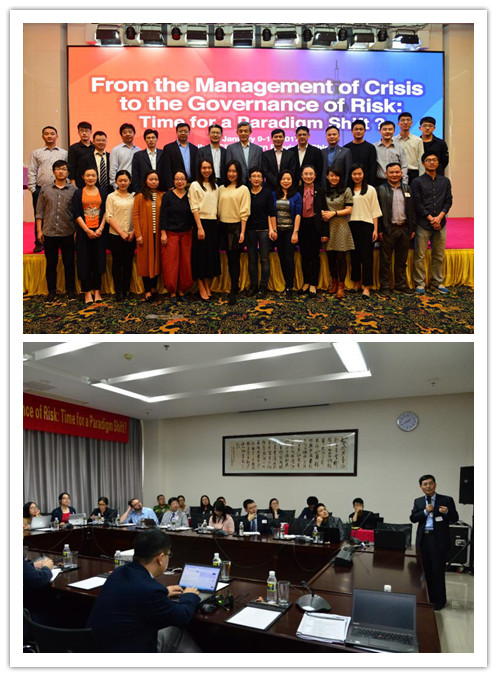From January 9th to 11th, the conference on the management of crisis and governance of risk was successfully held in Haikou City, which is sponsored by the Center for Crisis Management Research at Tsinghua University, Harvard Kennedy School Ash Center for Democratic Governance Innovation and China Institute for Reform and Development. More than 150 experts and scholars from over 15 countries attended the conference discussing the common challenges of managing risks and crises, and shared successful models and experiences in different emergency management systems.
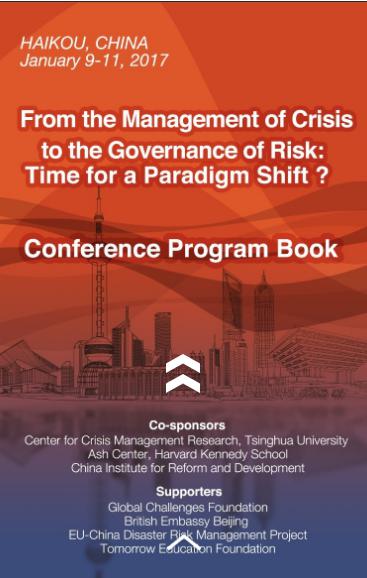
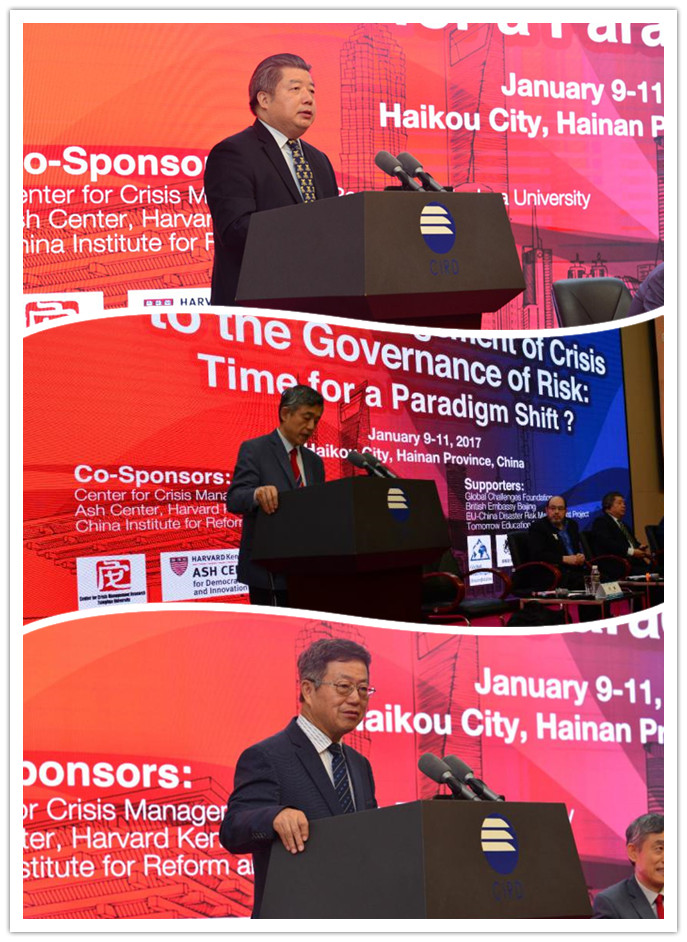
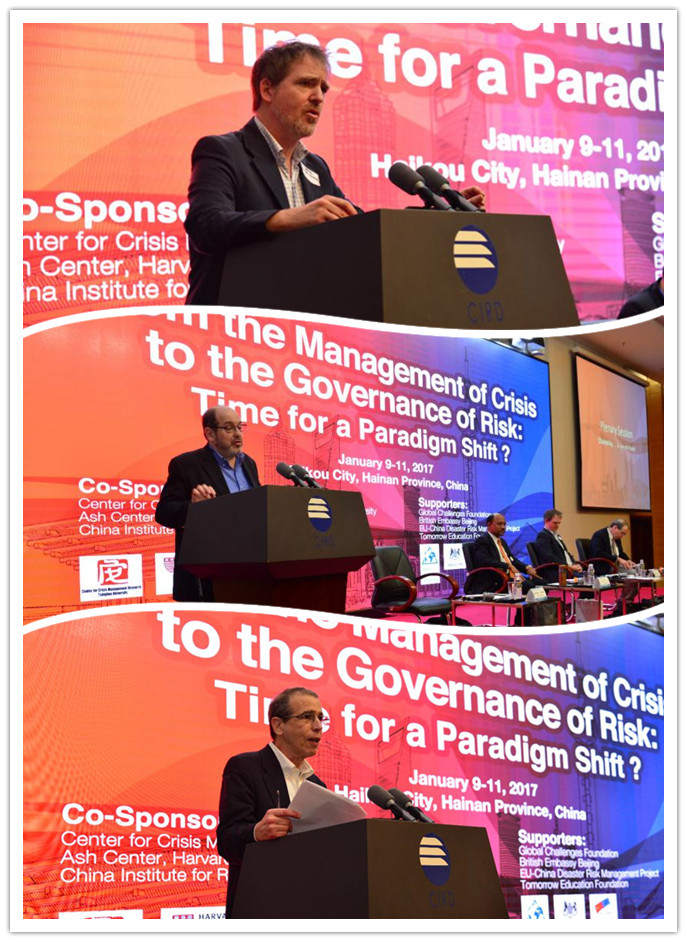
There are 16 panels covering a wide array of topics, including "emergency preparedness", "risk and emergency management", "risk and emergency governance system", "the political dimension of risk", "communication and media", "multi-hazard management", "recovery, sustainable development and mitigating future risk", "governing aging and emerging risks", "China-UK dialogue on building resilience and managing risks", "finding better frameworks for the management of global catastrophic risks" as well as "risk governance: experience demonstration".
The opening ceremony was chaired by Prof. Lan XUE, Dean of SPPM and CCMR Chief Scientist, who suggested that we need to reinforce risk communication, shift from traditional passive management to active risk governance. Shixiang LUO, the deputy general secretary of the Hainan provincial government, and Fulin CHI, the Dean of China (Hainan) Institute for Reform and Development delivered the opening speeches.
The first plenary session on the morning of January 9th was hosted by Dr. Arnold Howitt, and Rajib Shaw, Paul Knox Clarke and Robert Olshansky delivered their keynote speeches. Rajib Shaw emphasized the issues and potentials of using science advocacy in disaster risk reduction. Paul Knox Clarke discussed the coordination among international humanitarian organizations in emergencies and long-term relief operations. Robert Olshansky discussed the issues about relocating communities following disaster. Three panels were held in the afternoon of January 9. The launching ceremony of the Global Challenges Prize 2017 initiated by Global Challenges Foundation was held before the dinner.
The second plenary session was chaired by Professor Robert Olshansky on January 10th. Dr. Arnold Howitt presented the concept of advance recovery and promoted it from the aspects of plans, finance, communication, regulation and assistance. Prof. Lan XUE discussed the investment behavior of local governments in disaster mitigation in China. The round-table meeting after the second plenary session reviewed the existing risk and crisis research and set future research agenda in the field.
"China-UK Dialogue" sponsored by British Embassy Beijing and the panels sponsored by the Global Challenges Foundation were held on January 11.
The faculty members, full-time researchers, affiliated researchers and students at CCMR attended the conference and shared their research in different panels. CCMR director Zongchao PENG and Graduate Student Xinkui CHEN presented their research titled "Risk Perception: Interest & Profession, Which is the more influential factor? ". CCMR Associate Director Feng Cao shared his research titled "the failure of administrative accountability: a study on escalation of social conflict in China". CCMR Associate Director Xiaoli Lv presented his paper titled "Emergency management in China: towards a comprehensive approach" at the UK-China dialogue session. Xiaoli Lv and Ph.D. candidate Hao Xu shared their research titled "Effects of team structure, team climate and knowledge coproduction on the emergency planning effectiveness in China". Post-doc researchers Qihui Xie and Meilian Zhang presented their research titled "Enhancing disaster resilience through social media" and "Multiple perspective of crisis leaning in China: how it can be possible and what can we do?".
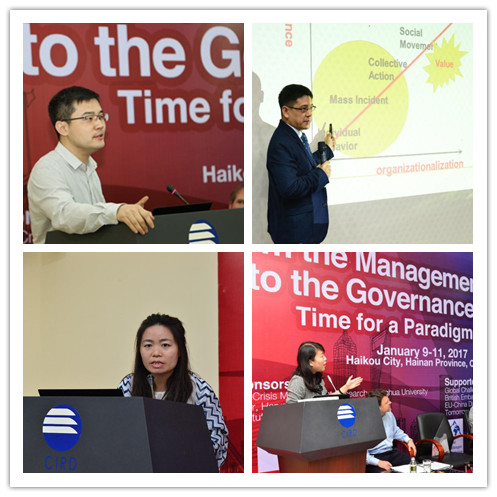
In the conference arrangement, this conference advocates reducing non-recyclable materials for environmental considerations.
